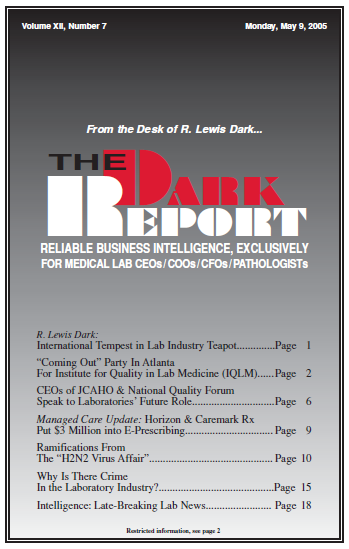CEO SUMMARY: Since 1991, there have been criminal indictments or criminal convictions of four former CEOs of public lab companies. Given the limited number of public lab companies active in the market at any moment in time, this is a remarkably high rate of criminal behavior. Moreover, the “bad behavior” of such lab firms puts …
Why Is There Crime In the Lab Industry? Read More »
To access this post, you must purchase The Dark Report.


